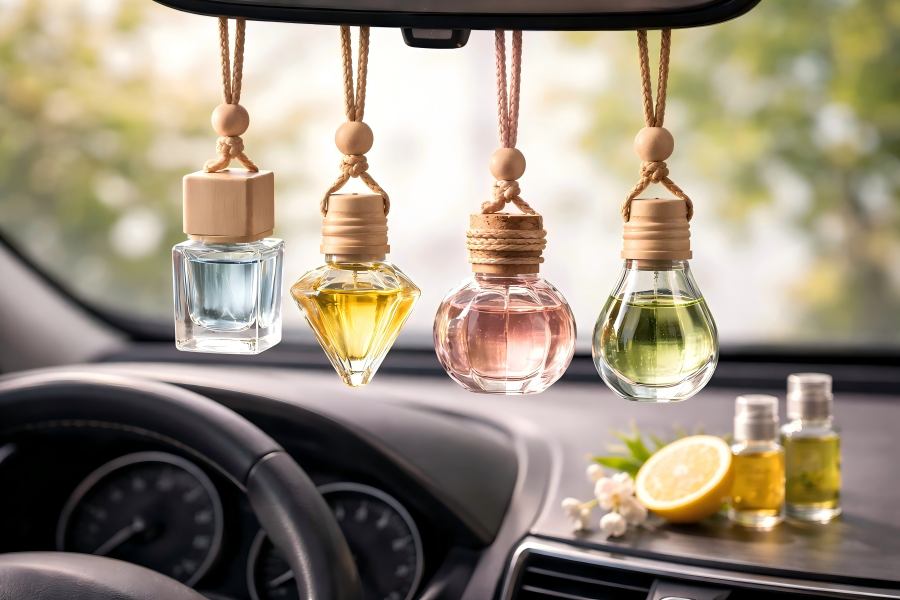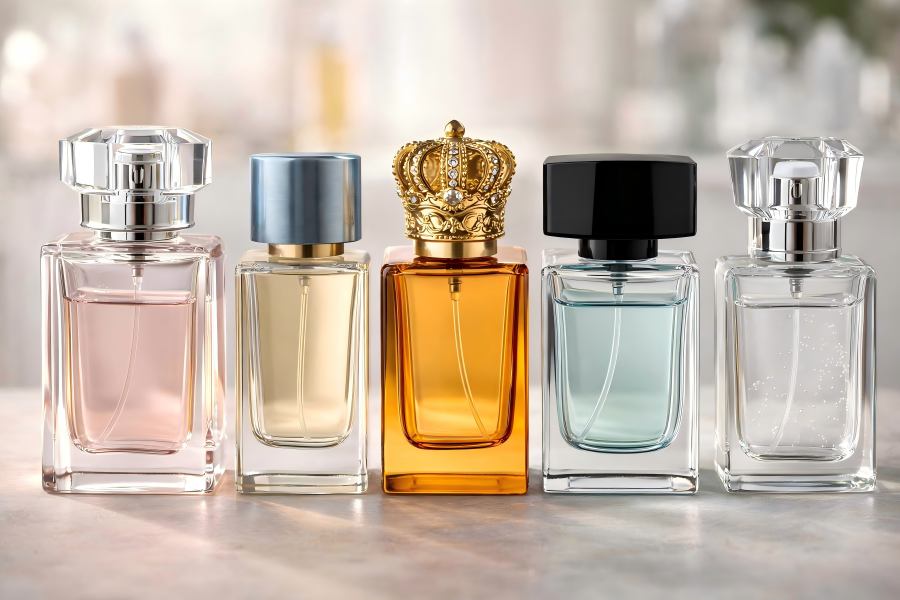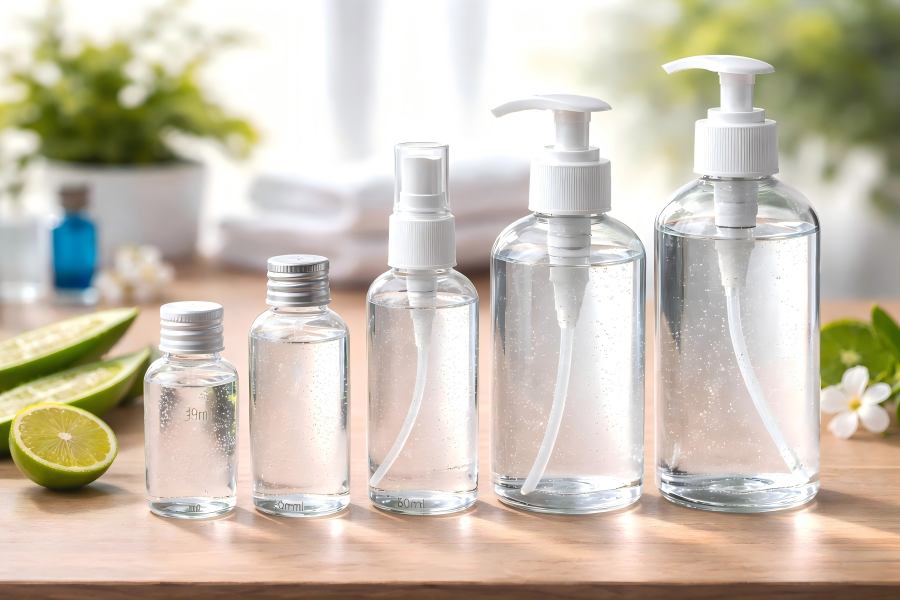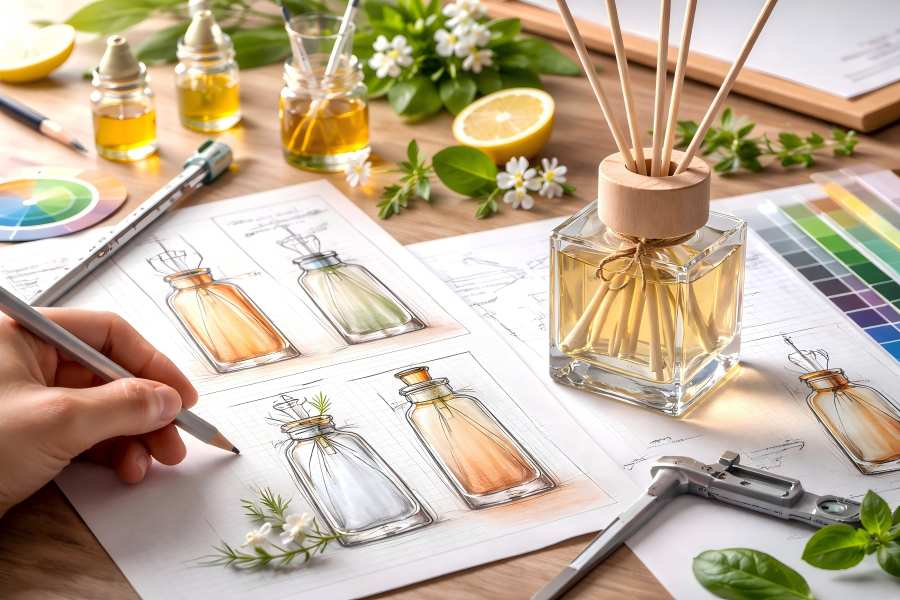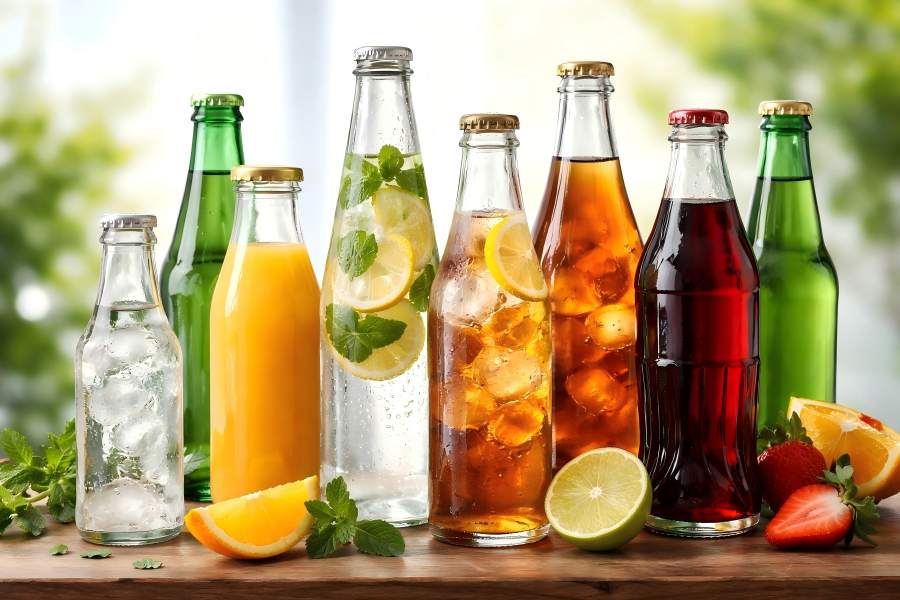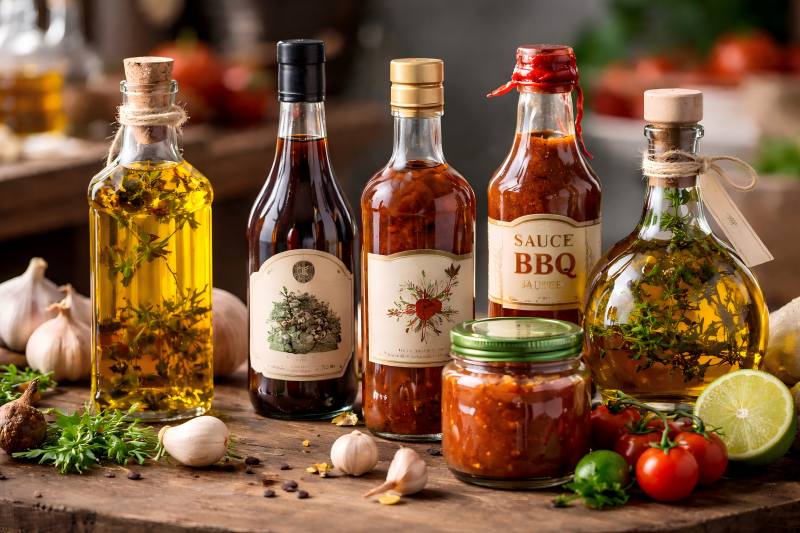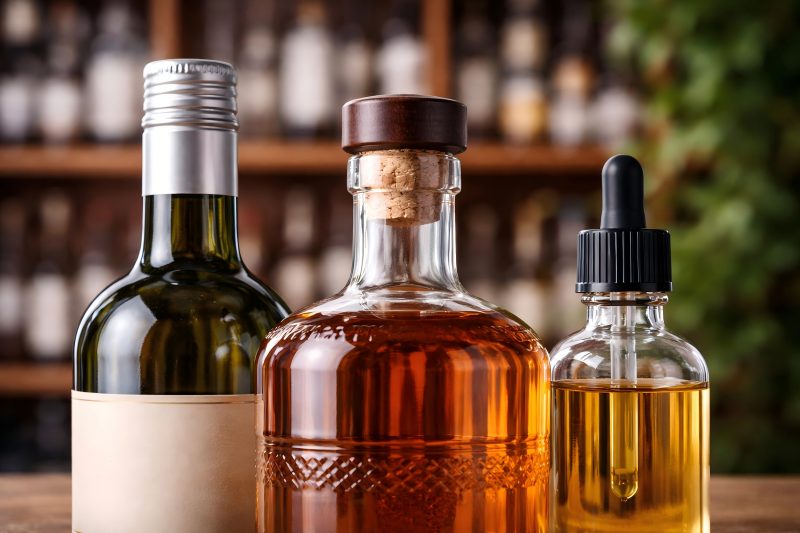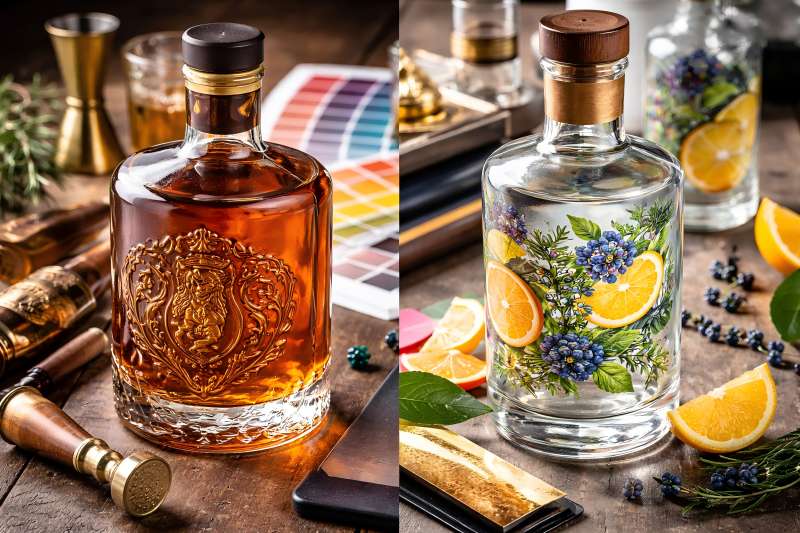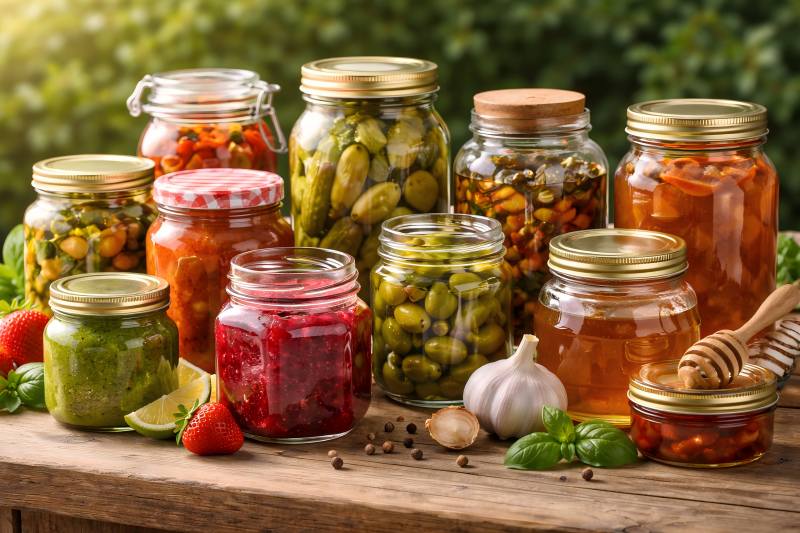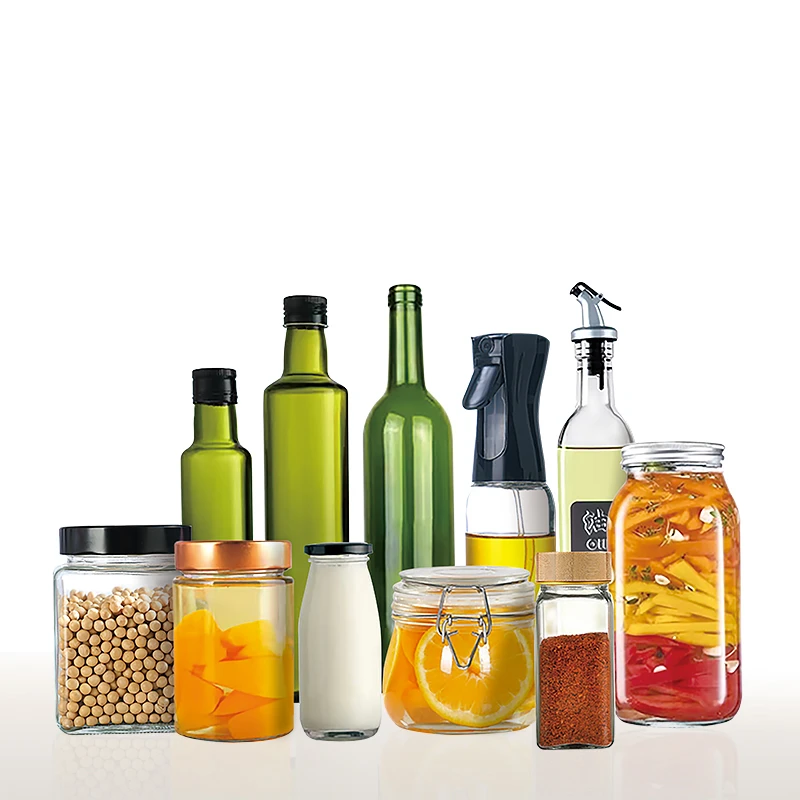Choosing the Right Glass Bottle for Craft Beverages
Glass bottles have long been the go-to packaging choice for craft beverages. Whether you’re brewing kombucha, fermenting cold brew, crafting small-batch soda, or distilling spirits, selecting the right bottle plays a vital role in product quality, shelf appeal, branding, and consumer satisfaction.
This comprehensive guide will walk you through the critical considerations when choosing the right glass bottle for your craft beverage—covering size, shape, color, closure, labeling, material, and regulatory compliance—so you can make informed decisions that benefit both your product and your brand.
Why Glass Bottles for Craft Beverages?
Glass offers distinct advantages over other packaging materials like plastic or aluminum, especially for small-batch, high-quality beverages:
- Non-reactive and flavor-neutral: Preserves beverage taste and carbonation.
- Premium brand image: Adds perceived value and aligns with artisanal branding.
- Reusable and recyclable: Glass does not lose quality when recycled or used again.
- Shelf-stable and airtight: With the right closure, glass bottles preserve freshness over time.
- Clear or tinted options: Showcases or protects your product as needed.
Manufacturers of craft beverages often employ glass for both practicality and aesthetics.
Understanding Your Beverage Type
Your beverage type greatly impacts your bottle choice. Here are a few common craft beverage categories and their packaging needs:
| Beverage Type | Considerations |
| Kombucha | Requires an airtight seal and UV protection; often carbonated |
| Cold Brew Coffee | Non-reactive interior, trendy shapes, good labeling surface |
| Craft Beer | Pressure-resistant, brown or amber glass preferred |
| Sparkling Water | Needs carbonation resistance and visual appeal |
| Spirits | Heavy base glass, premium appearance, tamper-evident closures |
| Artisanal Sodas | Vintage bottle shapes, swing-top closures, decorative labels |
Always match bottle features to product characteristics like carbonation, acidity, and shelf life.
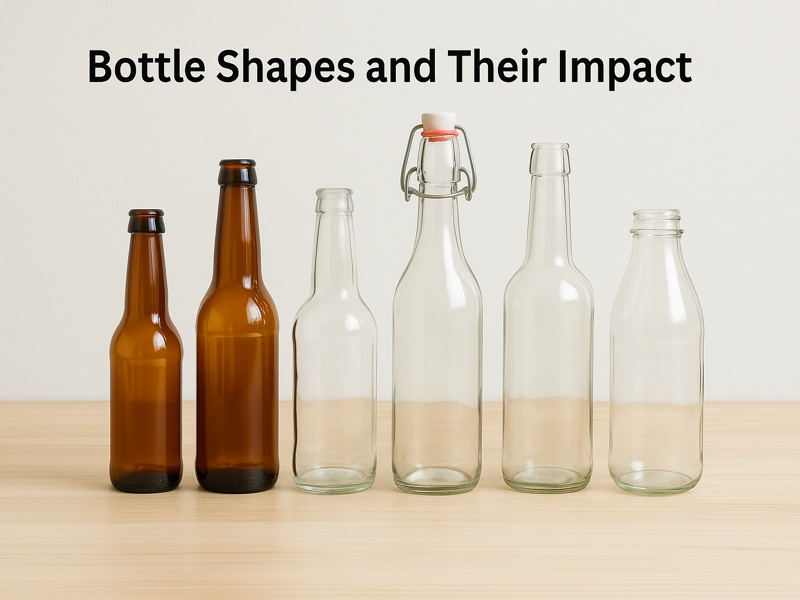
Bottle Shapes and Their Impact
The shape of your bottle affects storage, branding, user experience, and labeling.
a. Stubby Bottles (Short-Neck or Steinie)
- Short and stout, typically used for craft beer
- Compact and nostalgic appearance
- Easier to ship due to stackability
b. Long-Neck Bottles
- Iconic beer bottle shape, also used for soda and sparkling drinks
- Easy to grip, familiar to consumers
c. Boston Round Bottles
- Rounded shoulders and base, suitable for cold brew, kombucha, and infused drinks
- Available in clear, amber, and cobalt blue
d. Swing-Top Bottles (Grolsch Style)
- Mechanical closure, often reusable
- Ideal for carbonated or fermented beverages
- Adds a premium and eco-conscious image
e. Flint Spirits Bottles
- Tall, straight-sided with thick bases
- Common for whiskey, gin, and vodka
- Heavy glass signals quality
f. Juice Bottles
- Wide mouths and smooth sides
- Practical for fresh-pressed juice or non-carbonated blends
Bottle Size and Serving Portion
Size influences how consumers interact with your product. Common glass bottle sizes for craft beverages include:
| Fluid Ounces (oz) | Milliliters (ml) | Typical Use Case |
| 6–8 oz | 180–240 ml | Juice shots, espresso, mixers |
| 12 oz | 355 ml | Craft soda, beer, kombucha |
| 16 oz | 473 ml | Cold brew, sparkling water |
| 18–22 oz | 532–650 ml | Specialty beer, kombucha blends |
| 750 ml | Wine, spirits | High-end craft beverages |
| 1 Liter | Larger servings | Bulk kombucha, water, soda |
Consider your target audience and consumption habits when choosing size. Single-serve bottles work for retail shelves, while larger bottles are ideal for sharing or home use.
Choosing the Right Glass Color
Color affects both functionality and presentation. Here are the most common choices:
| Color | Features & Benefits | Ideal For |
| Clear (Flint) | High visibility, showcases beverage color | Cold brew, fruit soda, spirits |
| Amber | Blocks UV light, preserves sensitive ingredients | Kombucha, beer, and herbal infusions |
| Cobalt Blue | Distinctive shelf appeal, partial UV protection | Premium sodas, tonic, kombucha |
| Green | Traditional for wine, partial UV block | Cider, sparkling juices, botanicals |
Amber glass offers the best UV protection, making it essential for light-sensitive products like kombucha or beer.
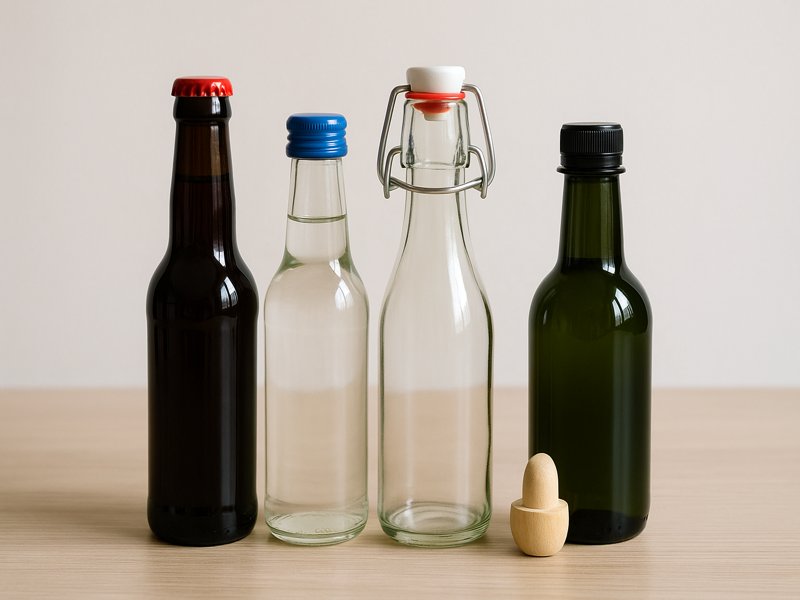
Selecting the Right Closure
Closures are crucial for product safety, carbonation, freshness, and compliance.
a. Crown Caps
Crimped onto beer and soda bottles
Airtight and pressure-resistant
Requires a capping machine
b. Twist-Off Caps
- Convenient for consumers
- Used in mass-produced soda and tea bottles
c. Swing-Top Closures
- Reusable and resealable
- Ideal for home-brewed or premium beverages
- Adds a traditional, eco-friendly touch
d. Corks and T-Corks
- Traditional for wine and spirits
- Requires additional seal (wax or shrink band) for tamper evidence
e. Plastic Caps with Tamper Evident Rings
- Common in cold brew and juice bottles
- Cost-effective and retail-friendly
Make sure your closure system is compatible with your bottling process and shelf life expectations.
Bottle Pressure and Carbonation Resistance
Carbonated beverages like kombucha, soda, and sparkling water build up internal pressure that standard bottles can’t withstand.
Key points:
- Use bottles rated for carbonation (e.g., pressure-resistant beer bottles or swing-tops).
- Look for bottles that can withstand 2.5–3.0 volumes of CO₂ pressure.
- Consider cap tightness and leak prevention during transport.
Neglecting this can lead to dangerous breakages or ruined batches.
Labeling and Branding Considerations
Your bottle is your billboard. Choosing a bottle with the right surface for labels matters for marketing:
- Straight-sided bottles allow full-wrap labels or shrink sleeves.
- Rounded bottles need custom die-cut labels.
- Embossed or debossed bottles offer permanent branding (often custom-made).
- Recycled content or embossed “refillable” notes add to brand values.
Ensure your label materials are moisture-resistant and conform to curves and pressure.
Packaging Trends in 2025
Sustainability, innovation, and premium design dominate beverage packaging this year:
- Reusable packaging: Swing-top and thick glass encourage reuse.
- Lightweighting: Glass bottles with reduced weight to cut transport costs and emissions.
- Minimalist labeling: Clear labels or etching for a clean, modern look.
- Custom molds: Unique shapes and embossed logos help brands stand out.
- Tamper-evident shrink bands: Add consumer trust and regulatory compliance.
Environmental and Safety Considerations
Glass is one of the safest and most sustainable beverage packaging materials:
- BPA-free and inert: No harmful chemical leaching.
- 100% recyclable: Infinitely recyclable without degradation.
- Compostable closures: Some brands now pair glass with biodegradable corks or plant-based caps.
For extra safety and transport durability:
- Consider tempered glass for high-pressure beverages.
- Use breakage-resistant shipping packaging and dividers.
Regulatory Compliance and Certifications
Depending on your region and beverage type, compliance may be required for:
- FDA (U.S.) or EFSA (EU) food contact certification
- Pressure resistance certifications for carbonated beverages
- Tamper-evidence requirements for alcohol and sealed beverages
- Recyclability labeling in eco-sensitive markets
Verify with suppliers that their bottles meet food-grade and beverage safety standards.
Where to Source Glass Bottles
There are three main ways to procure glass bottles for your craft beverage:
| Source Type | Pros | Cons |
| Local Suppliers | Shorter lead times, easier communication | Higher costs |
| Overseas Manufacturers | Lower price per unit, wide customization | High MOQs, longer shipping times |
| Specialty Packaging Firms | End-to-end design and fulfillment services | Higher overall cost |
Cost Breakdown of Glass Bottle Packaging
Here’s an estimated cost range per unit (USD), excluding freight:
| Bottle Type | Estimated Cost per Unit |
| 12 oz Amber Beer Bottle | $0.25–$0.40 |
| 16 oz Boston Round | $0.40–$0.70 |
| 500ml Swing-Top | $1.20–$2.00 |
| 750ml Spirits Bottle | $1.50–$3.50+ |
| Custom Embossed Bottle | $2.50–$5.00+ |
Prices vary by quantity, color, closure type, and decoration.
Choosing the right glass bottle for your craft beverage isn’t just about holding liquid—it’s about expressing your brand, preserving flavor, ensuring safety, and satisfying your customer. The ideal bottle balances form and function, reflecting your commitment to quality while delivering a superior drinking experience.

